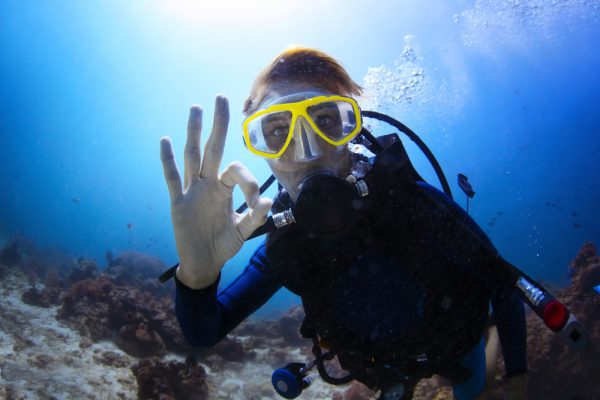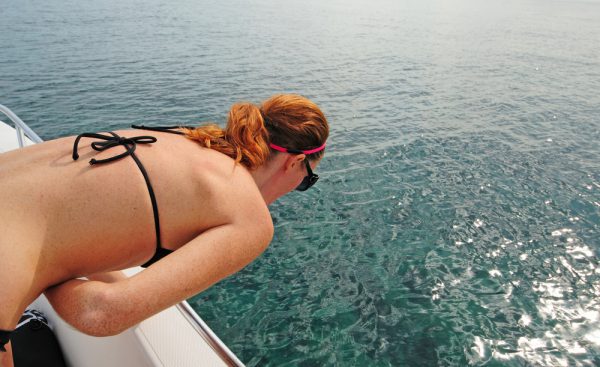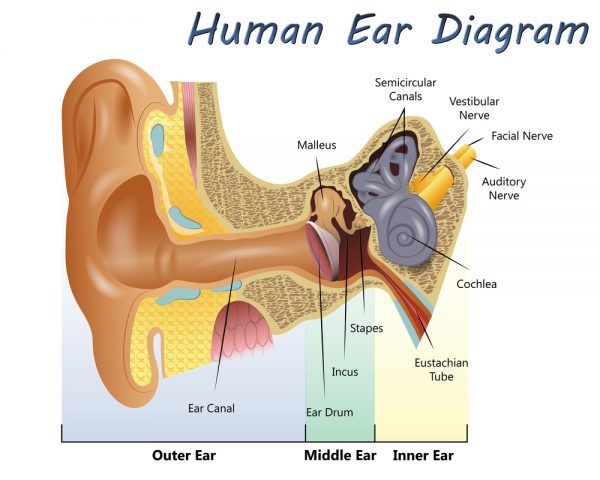 Sometimes as new divers it’s easy to feel intimidated. You feel awkward underwater having a dive buddy that appears to be in graceful hover mode and here you are bobbing up and down, flailing your arms around feeling no control at all.
Sometimes as new divers it’s easy to feel intimidated. You feel awkward underwater having a dive buddy that appears to be in graceful hover mode and here you are bobbing up and down, flailing your arms around feeling no control at all.
I know exactly how you feel because I was there too. I want to share with you some of my best scuba diving tips for beginner and novice divers. Scuba diving is an acquired skill that needs to be developed, like golfing for example, and the more you practice and further your education, the more you become confident and proficient.
Let’s get started!
10 Scuba Diving Tips For You As A Novice/Beginner Diver
1) Practice, Practice, Practice.
The more dives you do, the better your dive skills become. Your goal is to be neutrally buoyant and your breathing unstressed and relaxed so you can have more time to relax and see more interesting marine life. When you learn a new sport, the only way to get better is to keep practicing. One of the best ways to get more dives in and improve your skills is to enroll in PADI’s continued education. Courses such as Peak Performance Buoyancy and the Advanced Open Water Dive Certification can help you go over your goals with your Professional Instructors.
2) Careful On Alcohol Consumption Before and After Your Dive.

If you’re having a bad morning from feeling a little hungover after having a ‘few’ alcoholic beverages the evening before, it’s easy to think that once you get in the water, all will be well. Excess alcohol can cause dehydration if you’re not consuming enough water and may not get you focused enough to make safe diving decisions. When scuba diving, nitrogen gets absorbed into your tissues under pressure and when you surface, the excess nitrogen gradually releases from your body tissues (off-gassing). If you keep drinking alcohol and excessively, the nitrogen release slows and increases your risk of decompression sickness (DCS).
Drink lots of water before your dives and after your dives. Drink alcohol moderately and allow yourself a good couple of hours of no alcohol before you scuba dive.
Take this seriously, I’ve seen divers succumb to DCS and have had to go for treatment in the Decompression Chamber.
3) Monitor Your Gauges.
You don’t want to run out of the air in your tank and not have enough time to do your safety stops. Always monitor your air gauge and your depth gauge. Depending on your level of certification, as a recreational diver with PADI’s Open Water Dive Certification, the recommended depth is no deeper than 60’/18m. If you’re an Advanced Open Water Diver and because of your refined skills, the recommended maximum depth is 100’/30m. Always monitor your air gauge and let your tour guide know in advance when you’re running low on air. Remember, you still need time to do your safety stop of 3 – 5 minutes or more if you need to do decompression safety stop which is longer.
Always monitor your air gauge and let your tour guide and your dive buddy know in advance when you’re running low on air (500 psi). Remember, you still need time to do your safety stop of 3 – 5 minutes or more if you need to do decompression safety stop.
4) Buddy Check.

I know you’re anxious to get underwater, but isn’t it worthwhile to do a pre-dive buddy check? Why take the risk of finding out underwater that your air tank was half-turned? It’s not fun for you or your dive buddy to have to abort the dive because something was not checked and could have been prevented on the boat. Doing the buddy check can also clear up some of the anxieties you may have, like forgetting to bring you dive light for the night dive. The check can also give you more confidence that you are good to go. This is also a great time to go over your hand signals for communication and discuss any anxieties you may have as well get to know each other’s dive skills.
Doing the buddy check can also clear up some of the anxieties you may have, like forgetting to bring you dive light for the night dive. The check can also give you more confidence that you are good to go. This is also a great time to go over your hand signals for communication and discuss any anxieties you may have as well get to know each other’s dive skills.
Always check your buddy’s dive equipment and vice versa before the dive. It only takes a few minutes each to do or you can both do the inspection at the same time.
5) Pre-Dive Meeting.
Pay special attention to the information you hear from your Tour Guide. If necessary, write it down on your dive slate. You will want to know the dive type (I always ask the dive center before I book the dive because I don’t want surprises, i.e. very strong currents, etc.), how long the dive will take, entrance procedure into the water and exit procedure to get back on the boat, how deep the dive will be, etc. Remember to ask questions if you need to.
6) Fears and Anxieties.

If you have any fears and anxieties, it’s always a good idea to discuss them with your Tour Guide. Having a bit of anxiety is ok because it can make you more cautious of your surroundings but if you get to the point of doubting yourself and let fear overwhelm and take control of you, you really need to talk to your Tour Guide and/or your dive buddy. If you’re a new diver, let them know. If it still doesn’t feel right then don’t do the dive. Listen to your intuition… it’s the gift given to you.
7) Stay Close To Your Tour Guide.
As long as you and your dive buddy agree, you can stay close to your Tour Guide even if your group strays apart. This will give you more confidence and if you need to get the Tour Guide’s attention, you’re not far away from him. Stick with the pre-dive meeting plan.
8) Sea Sickness.

I don’t know about you but I’m prone to feeling seasick. If you don’t want to ruin your dive, make sure you take your sea sickness pill according to its instructions. If you forget and take it on the boat, you’re already doomed to feel horribly miserable on the boat and underwater.
9) Come Prepared.
Forgetting to bring a piece of your dive equipment can mentally get you to not feel organized and make you think you’re off to having a bad day. It’s easy to lose your confidence and your focus underwater. Make sure you have an inventory checklist to help you pack everything in your dive bag so you don’t forget all your important gear.
10) Remember To Keep Breathing.
Never hold your breath and breathe continuously underwater when scuba diving. This is your Number 1 rule when it comes to scuba diving. Holding your breath may cause you to have an air embolism. When you hold your breath, you are sealing your lungs and as you ascend, the air you have in your lungs will expand and have no place to go. This can cause lung-over expansion injury.
11) Remember To Equalize Your Ears Frequently.

Equalizing your ears too late or not often enough when scuba diving will cause a great deal of pain in your ears. This is because the pressure in your outer and inner ears do not match the pressure in your middle ears. Leaving the pressure build up in your ears can cause ear injury resulting in permanent hearing loss or depending on the severity may cause rupturing of the eardrum and take months to heal.
There are many ways to equalize your ears. What works well for me is, as soon as I enter the water, I’ll go down about a foot and pinch my nose and lightly blow out, ascend another foot etc. until my ears have equalized. You pretty much have to find what works for you and may end up trying several methods.
12) Colds.
If you’re all plugged up and have trouble breathing, your nose is runny or you cough or sneeze, do not dive. The consequence of still going underwater may easily cause you to have difficulty equalizing your ears underwater and get you and your dive buddy (won’t be happy) to abort your dive.
Do you have any tips you would like to give to the newly certified and novice divers? If you have any stories of your experiences when you first started in diving and would like to share them here, I really would like to hear from you.
Thanks for reading!
